At the age of 26, Inaya Folarin Iman is already an established public figure, known as an advocate for open discussion on that most contentious of issues: race. Born in London as a second-generation immigrant to parents who came to the UK from Nigeria, she grew up with her mother and sister in Kent. She read Arabic and International Relations at Leeds University, after which she was hired by Index on Censorship.
Folarin Iman was criticised in 2019, when the Free Speech Youth Advisory Board she helped to found, and which would ultimately become Free Speech Champions, was reported in the Guardian to be an ‘astroturfed’ front for the Free Speech Union, founded by the right-wing journalist Toby Young. In the 2019 general election, she stood (unsuccessfully) as the Brexit Party candidate in Leeds North East, gaining 1,769 votes. Last year, she became a presenter at the newly founded GB News, which has been criticised for its right-wing bias and its approach to free speech.
In 2020, she founded the Equiano Project, which describes itself as ‘a forum to promote freedom of speech and open dialogue on the subjects of race, identity and culture.’ In 2021, she was appointed as Trustee on Youth Engagement at the National Portrait Gallery by Johnson’s government. The Guardian and the Art Newspaper were quick to draw attention to this appointment, because of her association with GB News.
Folarin Iman is now no longer involved with GB News or the Free Speech Union, nor a member of any political party.
I met her over coffee in the Blue Boar Pub, Westminster. We discussed the origins of the Equiano Project, what ‘racism’ means, the Black Lives Matter protests, and the problems with ‘decolonising the curriculum’. Other topics included her path to where she is now, her British-Nigerian roots, and whether she still thinks Brexit was a good idea. The interview also raises the question of which orthodoxies – on the left and the right – can be criticised by whom. Comments are open below.
~Emma Park, Editor
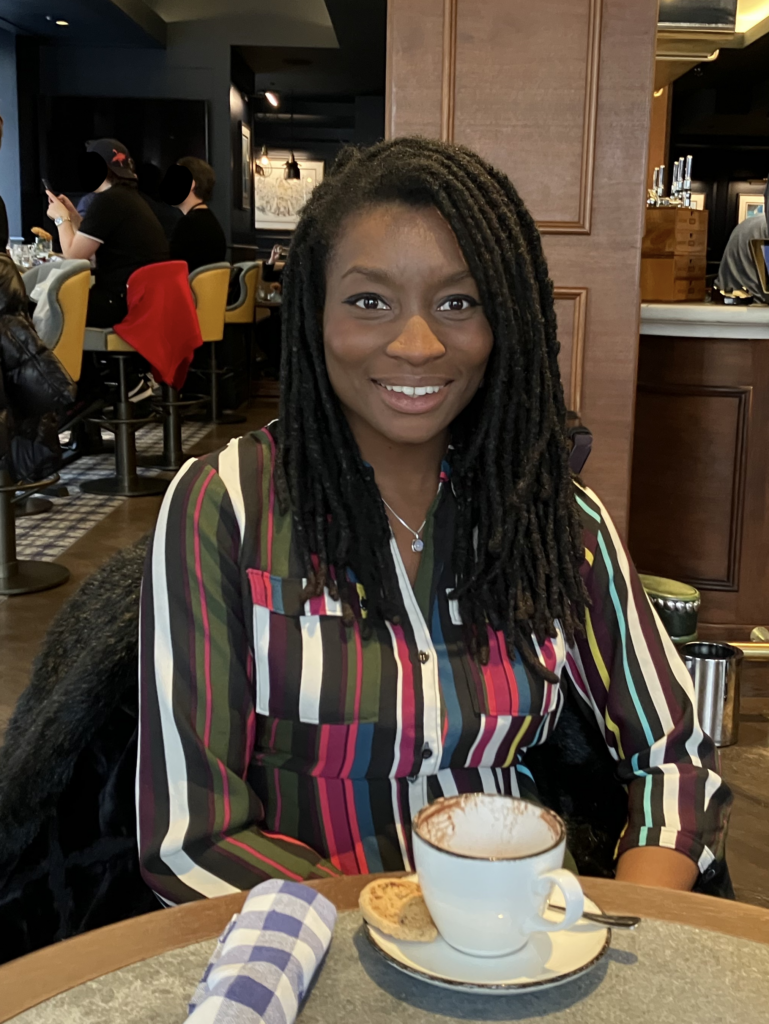
How would you describe your childhood or teenage years – were there any defining moments?
I grew up in Kent, but for the first two years of secondary school, I went to a private boarding school in Hertfordshire. I left halfway through Year 8 because I was homesick, so there was a panic to get me into a new school. I ended up going to one of the local comprehensive schools, which was a culture shock. For sixth form, I went to a grammar school. This had a big impact because it made me reflect on how your social, cultural and economic status shape your sense of what is possible for you.
Boarding school kids all believe that they can achieve anything – and they are right. With many of the other [state schoool] kids, their expectations and ambitions were less, even though they were intelligent and capable. Going to several different schools, I also had to start again repeatedly in terms of friends, so I was used to being the outsider and trying to persuade people that I was coming from a good place. Also, my mum has always been political. She has been involved in campaigns in the UK. My father is also Nigerian, but I have not spoken to him for ten years.
What is your mother’s take on things politically?
She is small-‘c’ conservative. She is a British Nigerian, but contrary to what people might expect, she is not an evangelical Christian, but an atheist, so she is very independent-minded. Mum got us debating, discussing and thinking independently. She worked really hard in multiple jobs to send me and my sister to a good school. That has shaped my thinking about the importance of hard work, not making excuses for yourself, and not seeing yourself as a victim, even if there are things that you are being victimised by.
My mum was born in Nigeria, but I have only been to Nigeria twice. Despite that, I still feel connected to it. I love the music, a lot of the history, elements of the culture – not all. I see myself as British Nigerian, even if I do not speak the language. I have spent time studying Yoruba. I think it is part of the experience of being a first or second-generation immigrant, of trying to locate your place in the world.
Do you have any religious beliefs?
I would describe myself as agnostic. I have never had a practising religion. I grew up around evangelical Christians, but I studied Arabic at university, so I spent a lot of time around Islamic culture and lived in Morocco.
What has your path been from university to where you are now?
Originally I thought that I would go into Middle Eastern foreign policy. But I started university in 2015, and those years, 2015-18, were a huge, angry time politically. Trump came to power, Brexit happened. The populist movements, the campus free speech debates – it seemed like an important time to participate in the public conversation.
Once I left university, my first job was working for Index on Censorship. I was a project manager, where I was able to create a free speech project from scratch. I met journalists and writers, and spoke at events.
During the Black Lives Matter protests of 2020, I felt a moral responsibility to present a different perspective. What was being presented as unquestionable about British society and the experience of being a black person in British society did not reflect my experience, or that of my family, or of all the people that I knew. I had a small platform and decided to start writing about these things. And to my excitement, it got picked up.
In 2019, you were the Brexit Party candidate for Leeds North East. Do you still think Brexit was a good idea?
I did not actually vote for Brexit. I did not vote in the referendum either way, because I was in two minds. On the one hand, I supported the principle of greater sovereignty and democracy, but I was worried about the people that were leading the Brexit campaign and whether or not their vision of what Brexit meant reflected the kind of society that I wanted to live in.
Once we voted for Brexit, I did believe that it was imperative to implement it. That is why I stood for the Brexit Party. That surprised people, because I was a young person. I would probably get my head chopped off by my friends and colleagues if I said that I had Brexit regret. I do not know if Brexit was a good thing, or at least, I think there is a lack of discussion about what we need to do to make it work.
Where would you place yourself on the political spectrum?
This may surprise people, but I see myself as a bog-standard liberal. All the positions I have taken, contrary to popular belief, have been from a liberal standpoint. To me, Brexit was a question of sovereignty and democracy, which is a liberal argument. I have criticised identity politics because it contradicts the liberal ideals of colour-blindness, individual freedom of conscience and autonomy.
But isn’t GB News a right-wing platform?
It is probably true to say that there is a disproportionate number of people right of centre who present and appear on GB News. However, they are committed to platforming different viewpoints and oftentimes people on the left will just not go on, which is unfortunate. For example, Owen Jones and Aaron Bastani have been invited, but will not go on. That only perpetuates the type of people that are there.
If you are someone that critiques the orthodoxies, you may just have to accept being labelled right wing. I know many liberal-minded people on the centre left who are called ‘right wing’ because they defend free speech. That is unfortunate, especially when we live in an ecosystem of ‘guilt by association’.
Why did you found the Equiano Project, and what are its aims?
I founded the Equiano Project in 2020. It was something that I had been thinking about before the Black Lives Matter movement. But it became urgent then, because we were being told that all black or ethnic minority people felt that Britain was a fundamentally racist society and that race and racism were really the primary way in which they viewed the world and related to each other. That was just not true. The Equiano Project was founded in order to host a series of discussions and debates about these issues: decolonising the curriculum, whether liberal ideals can inform solutions to questions of racism, whether we need a new narrative on race, and the causes and consequences of racial disparities.
The first event was entitled, ‘Is it time to forge a new narrative about race?’ It was a success. Speakers included a wide range of people, but all committed to liberal ideals. After that, it expanded. People would ask us to speak at schools and cultural institutions like museums and galleries, and try to navigate the complex cultural and moral questions that people were grappling with about race, due to the public pressure to be seen to be doing something. We continue to open up the space to discuss these issues from a wide range of perspectives.
Who is the project funded by?
We have only been funded by individual donations from ordinary people. That is where all of our money has come from.
Have you received much backlash over this project?
Surprisingly, no. I think that is because I have been careful to involve diverse perspectives, to understand where the viewpoint I disagree with is coming from, and to counter that in as nuanced a way as possible.
What is ‘race’, what is ‘racism’? How are they related to each other?
My idea of being anti-racist is to abolish race. ‘Race’ is the categorisation of human beings into biologically distinct subcategories. That is what we are doing when we see each other as permanent, distinct races and treat each other differently as such. The problem with contemporary anti-racism is that its proponents take race to be real in an important sense. They see different identity groups as having intrinsic meaning. They attribute meaning to white identity, and they reverse-attribute meaning to black identity by seeing it as morally superior and innocent, and ‘whiteness’ as a force of domination. I do not attribute meaning, positive or negative, to any racial category. I believe in the goal of achieving a colour-blind society.
‘Colour-blind’ in what sense?
In a political sense: that we should not treat each other differently from a political standpoint on the basis of race. It is equality in the true sense of treating people equally. That does not mean that we cannot recognise our distinctiveness. I am proud of my Yoruba heritage and it has a history, a culture and a legacy that has meaning to me. I do not need my self-esteem or my identity affirmed by the state or by the education system. When you enter society, you enter into something that is beyond race: a sense of citizenship, something universal, a shared civic community where we participate as equals. That, to me, is democratic. We are all capable of entering into it, and we all should have the ability and capacity to shape it.
How would you define ‘racism’?
‘Racisim’ is prejudice and discrimination against people based on their real or perceived race, and also the attribution of morality or moral values based on someone’s perceived race. Even the statement that ‘whiteness’ is a force of domination I would class as a form of racism, just as I would class the discrimination in employment against a black male as a form of racism. Having simple definitions is really important for us to be able to understand what these problems are.
You recently did an investigation into the trend in schools to ‘decolonise the curriculum’. Could you say a bit more about that?
‘Decolonisation’ is the removal of a colonial power from the state governance of a particular country. Decolonising has nothing to do with the extent to which certain ideas or ways of behaving are or are not influenced by a previous colonial power. The attempt to expand the definitions of colonisation and decolonisation is damaging. For example, if an African society, such as Nigeria, thinks parliamentary democracy is a good thing and it works better than the earlier system of clans and chiefdoms, that is not colonial, that is them making a judgement using their own agency. The attempt to attribute huge sections of modernity to colonialism in a pejorative sense is deeply corrosive to the intellectual, political and moral development of African-descended people.
The liberal ideals of free speech and democracy are based on the moral principle that we are capable of weighing up competing arguments and coming to our own conclusions. We are moral agents. If you believe that those ideals are white only, you are effectively saying that only white people are moral agents. That is a deeply racist and morally objectionable way of thinking.
The kinds of things we are seeing young kids being taught at school are pernicious.
What schools have you been looking at for your investigation?
They were state and private schools across the country. At the Equiano Project we get emails from parents on a regular basis, and even dissident teachers, who are worried about what is being taught. Other organisations describe experiencing the same thing: curriculum materials that promote a form of racial essentialism, a narrow, simplistic idea of society. One of them was that ‘racism started when white people decided to oppress black people’. For a kid, that is very confusing – it is open to misunderstanding and even to a sense of insecurity and self-loathing. All of this is being done in the name of anti-racism. But I think we have gone a long way from knowing what our foundational values are. We are morally confused.
How should these issues be discussed at primary school?
They should not be discussing them at primary school. What we need to be doing is promoting values that we all agree with: being kind, treating people as you want to be treated, not judging a book by its cover. These things do not racialise kids.
The Equiano Project invokes the values of ‘freedom, common humanity and universalism’. Can these values unite people across the political spectrum and around the world?
Yes. It was these values that won out in the 1960s civil rights movement. Martin Luther King, like Frederick Douglass before him, argued for our common humanity – so as to render racism absurd from a political standpoint. People forget that in America there are still people alive today who lived through segregation, or who remember how, in Britain, you would once be spat at on the street if you were mixed-race. Nowadays, racism is highly socially taboo. By and large, people feel like they belong. That is due to the ideal of common humanity, not because of identitarian activism.
When you make blanket statements and seek to homogenise race, and try to funnel everyone’s experience through that single lens, it is divisive, because that is not how people see themselves. People are complex, with a web of desires, relationships and interests.
Have you ever experienced racism yourself?
Of course. There is not a single ethnic minority person in this country who has never experienced racism. But did it define me? No. Did it completely traumatise me? No. If someone shouts the ‘n’ word at me, I actually feel more sorry for them. But has it happened a lot? No.
What is critical race theory and what is your view of it?
Critical race theory is an academic school of thought with many serious scholars, like Kimberle Crenshaw, Derrick Bell and Richard Delgado. It emerged in the 1980s as an attempt to explain why there was still de facto racial inequality in America, when there was de jure equality and segregation was illegal. This school of thought attempts to understand this disparity by arguing that liberal principles, such as equality under the law, freedom of expression, and colour-blindness, are not politically neutral or universal ideals, but are couched in white Western racial superiority, and their application reproduces inequality. They argue that racialised power structures shape outcomes.
But I think they are wrong. To suggest racism is permanent or inevitable is a cynical and pessimistic way of viewing the world.
How far does politics come into your role as Youth Engagement Trustee in the National Portrait Gallery?
As a gallery that is about history, there are debates at board level about who we consider important, and what we say about those people portrayed in the gallery. These debates reflect the debates going on in wider society around contested history. Some people want us to emphasise that empire is a moral evil, whereas others may take a different approach.
My argument is that we need more history, not less: the past is as complex as the present. Whilst there are examples of great triumph and bravery, there are also examples of extraordinary suffering and brutality. All of those things tell us about our humanity, and therefore we should keep them all. That is an honest approach to history. I am not for removing portraits or being too moralistic in how we describe them. We should all be able to make up our own minds about the actions of certain people.
Is it appropriate to judge the past by contemporary moral standards?
I do not think the present should be made hostage to the future or the past hostage to the present. For all we know, in fifty years’ time we are going to be judged as morally reprehensible for factory farming. Our ancestors probably knew a lot of things, and were probably more interesting and smarter than us in different ways. They had the Enlightenment – we probably have a counter-Enlightement! I do not believe in projecting our contemporary moral values onto the past and then attacking the past for not meeting our present moral expectations.
In the project which became Free Speech Champions, the Guardian reported that some of the students originally involved left because they said it was too close to the Free Speech Union. What is your response to this?
Free Speech Champions is still going strong. Many of young people that are involved in the project are now working for magazines and newspapers. In the early days, the question of how to create free speech in such a politically heated climate, for a generation who have only ever associated free speech with harm, was a difficult challenge. Ultimately there were different views about what constituted free speech. I tend to take the broadest view of free speech, whereas other people have differing views, and that led to some of them not wanting to continue. Some of the people who originally left have since changed their minds and have participated in some of the project’s events and initiatives.
Is there a problem for a free speech movement like yours, that you may not be able to include enough people on the left?
Out of all of the young people in FSC, a minority are on the right. That is partly because the right has a problem with free speech. This is that, by ‘free speech’, they often mean ‘my free speech’ – ‘I want to say what I want on race,’ ‘I want to say what I want on gender.’ But actually, free speech as an ideal to expand open enquiry, for experimentation, for exploration, does not always attract people on the right.
For me, free speech is about liberal culture and liberal ideals. It is an open question how far many conservatives subscribe to those ideals. In FSC, most of the young people are politically homeless. There are several from the old left – the Bennite left; others are disaffected liberals. Unfortunately, if you defend certain things, someone is going to label you right wing. But you have to keep standing up for what you believe in.
Enjoy this article? Subscribe to our free fortnightly newsletter for the latest updates on freethought.


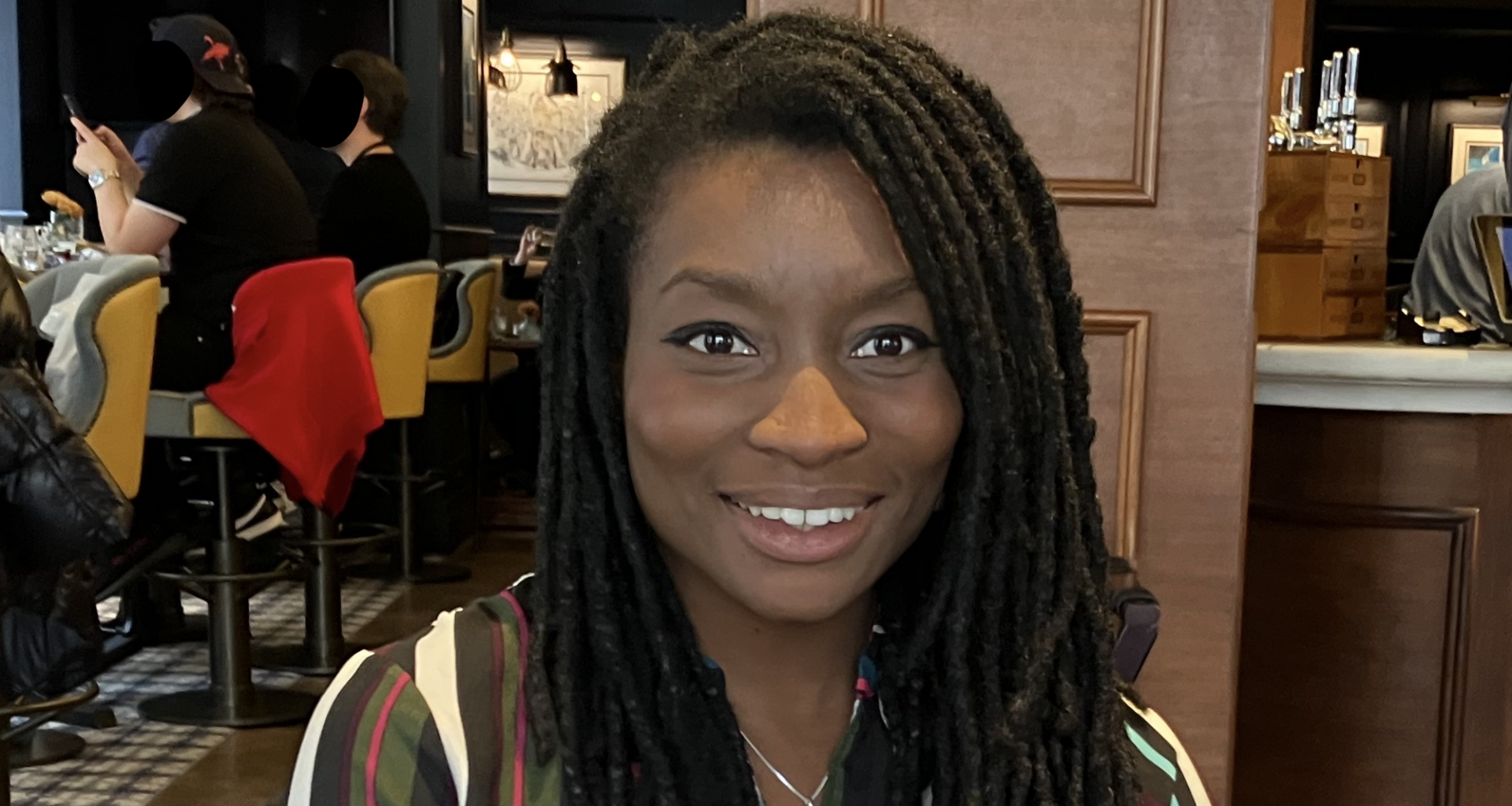

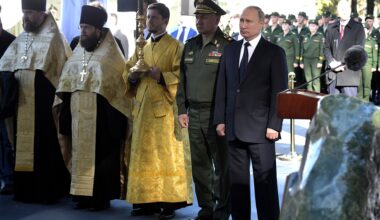
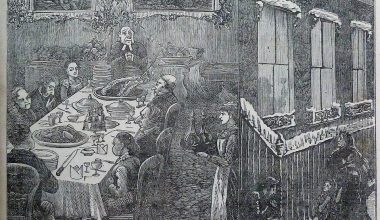
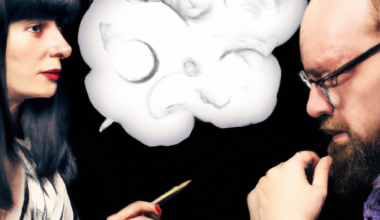

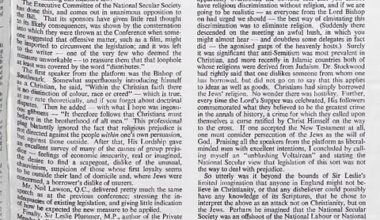
2 comments
This article must go down as the most pointless ever. This woman is not interesting at all.
Folarin is on my fantasy dinner party guest list. I love her intellect.
Your email address will not be published. Comments are subject to our Community Guidelines. Required fields are marked *
Donate